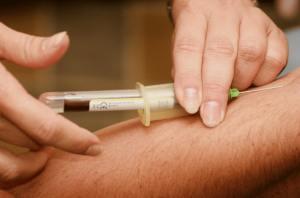Are tests accurate, and can we trust the results?
We had sex without a condom. What if I am pregnant? Can I trust a home pregnancy test? Breast tenderness, nausea, and missed periods often trigger the equation, “Could I be pregnant?” Couples trying to get pregnant anxiously check their fertility apps waiting for the right day to find out.
Stressing out is unnecessary. Home pregnancy tests offer a simple solution and are readily available at any pharmacy. These tests will provide you with an answer within minutes of use.
How do Pregnancy tests work?
Pregnancy tests detect the presence of a hormone called HCG (human chorionic gonadotropin). Hormones are chemicals produced by the body. As soon as fertilization and implantation occur, the production of this hormone begins.
Once the production of HCG starts, the hormone levels rise quickly. HCG hormone levels increase by 66% every two days. When the levels are high enough, tests can detect the chemical in blood and urine.
Because of the predictable pattern of HCG rise, a home pregnancy test will be accurate about ten days after conception.
By the time a woman is due for her period, a pregnancy test has a high likelihood of being accurate. Home pregnancy tests are highly sensitive, allowing for early pregnancy confirmation. In other words, we can trust the test results.
Are home pregnancy tests accurate?
Home pregnancy tests are 99% accurate. They are the same tests used in a doctor’s office. Home pregnancy tests are very reliable when used correctly.
Some home pregnancy tests are more accurate than others meaning they can detect lower levels of HCG hormone. These tests allow earlier detection of pregnancy.
The best time to take a test is after a missed period. If one waits until then, any home pregnancy test will work to give an accurate result. The slight variation of various pregnancy test sensitivity no longer matters.
It is important to check the test’s expiration date. Expired tests may give inaccurate results.
 Photo by Federico Respini on Unsplash
Photo by Federico Respini on Unsplash
When is the best time to take a pregnancy test?
The first urine in the morning will provide the most accurate test results. The highest levels of HCG are present in the morning when urine is the most concentrated. After sleeping, our bodies are dehydrated. HCG detection rates will be higher.
Home pregnancy tests can detect HCG hormone as early as 7–10 days after conception. Despite the popularity of fertility apps and menstrual calendars, we can not always predict the exact day of conception.
Pregnancy occurs when a sperm fertilizes the egg. But conception may lag a few days behind the date of last intercourse, meaning pregnancy does not always happen at the exact time one had sex.
Some women have a slight variation in ovulation days from month to month. Ovaries do not always follow the rules. Ovulating a few days later than expected will delay the home pregnancy test’s ability to detect HCG.
Waiting for a missed period or at least two weeks after intercourse will result in an accurate test result.
 Photo by Kelly Sikkema on Unsplash
Photo by Kelly Sikkema on Unsplash
How do you take a home pregnancy test?
After purchasing a home pregnancy test, open the box to review the package instructions. Each brand includes a detailed package insert with an illustration to help interpret the test. Following instructions is a critical step for accurate result interpretation.
The instructions include an image showing both a positive and a negative test. This varies from brand to brand. Some use a plus or minus sign. Others show two lines for pregnancy and one line when not pregnant.
Each brand also indicates the number of minutes required before analyzing this result.
A urine dipstick, included in the package, is placed into the urine stream or collection container. After waiting the required time, compare the test results to the package insert illustration.
What can go wrong with a home pregnancy test?
Most tests have a control indicator to ensure the tests are working correctly, typically a line or symbol on display. The control lines illustration is included in the package insert. If the control indicator is not working, then the test is not either.
It is essential to wait the recommended time before reviewing the results. Most tests are completed within 2–3 minutes. Early “peaking” may lead to an inaccurate result.
False-positive tests appear if the test sits too long. A false positive is when a test indicates pregnancy in someone who is not. This common error occurs after users discard a negative test in the trash but then look at it later.
If a test sits idle, they often convert to positive. A test sitting around for a while will not provide an accurate result.

Photo by Photo by Hush Naidoo on Unsplash
Do I need a blood pregnancy test?
HCG hormone is not only secreted in urine. It is also present in the bloodstream. A blood test still detects HCG hormone, but doctors can check the hormone levels instead of a “yes or no” answer.
A blood pregnancy test is more accurate, but they also take longer and require a doctor visit. Physicians often use HCG blood testing to determine the viability of early pregnancy and to exclude the possibility of an ectopic pregnancy.
In most cases, a home urine pregnancy test is sufficient to answer the question, “Am I pregnant?”
I have my results…now what?
Assuming you have followed the package instructions and waited the recommended time, then the results are reliable.
If the test is positive, then you are pregnant. Repeating the test costs money. Start taking a daily prenatal vitamin containing Folic acid and schedule your first prenatal visit.
If the test result is negative, you are not pregnant. If you are trying to conceive, then continue the efforts. If your goal is to avoid pregnancy, consider scheduling a family planning visit to discuss the many available contraceptive options.
…
Thank you to BeingWell for publishing this article on Medium.
Blog Author: Dr. Jeff Livingston
Main Blog Photo By: Jonathan Borba on Unsplash











